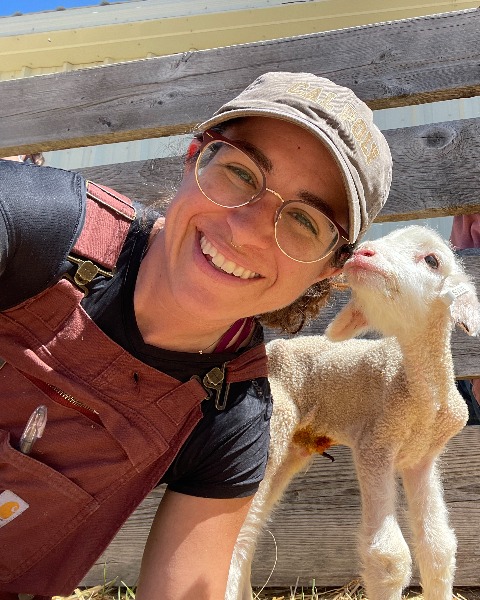Food Animal Internal Medicine
In Person Only
Technician
Diagnostic Techniques and Management of Gastrointestinal Parasites in Ruminants and Camelids
Friday, June 7, 2024
11:00am - 12:00pm CT
Location: MCC M100H
CE: 1.0

Grace VanHoy, DVM, MS, DACVIM-LA
Clinical Assistant Professor - Livestock Medicine and Surgery
UC Davis School of Veterinary Medicine
Woodland, California, United States
Primary Presenter(s)
Disclosure(s):
Grace VanHoy, DVM, MS, DACVIM-LA: No financial relationships to disclose
Presentation Description / Summary: Gastrointestinal (GI) parasitism is one of the most common causes of morbidity in ruminants and camelids of all ages and is an important cause of mortality in young ruminants and camelids in the United States. Several factors such as worsening parasite dewormer resistance, and the expanding range and season of parasites has caused parasite management to become a complex healthcare crisis. Being able to select the correct diagnostic method, interpretation of results such as fecal egg counting and drug resistance testing and understanding treatment options are crucial first-lines of defense in managing GI parasites in livestock species. In addition, being able to perform impactful client education on prevention and integrated management strategies that do not rely solely on drug use are important skills for the entire healthcare team. This session will focus heavily on diagnosis and management of gastrointestinal parasites in ruminants and camelids.
Learner Outcomes: 1. Select an appropriate diagnostic method for detection of certain parasites. 2. Recognize common gastrointestinal parasite eggs and oocysts. 3. Recall common comorbidities associated with gastrointestinal parasitism in ruminants and camelids. 4. Select an appropriate parasite treatment based on the outcome of common diagnostics. 5. Describe preventative methods and basic herd management recommendations for different gastrointestinal parasite types.
Learner Outcomes: 1. Select an appropriate diagnostic method for detection of certain parasites. 2. Recognize common gastrointestinal parasite eggs and oocysts. 3. Recall common comorbidities associated with gastrointestinal parasitism in ruminants and camelids. 4. Select an appropriate parasite treatment based on the outcome of common diagnostics. 5. Describe preventative methods and basic herd management recommendations for different gastrointestinal parasite types.
Learning Objectives:
- Upon completion, participants will be able to select an appropriate diagnostic method for detection of certain parasites and recognize common gastrointestinal parasite eggs and oocysts on a fecal flotation slide.
- Upon completion, participants will be able to recall common comorbidities associated with gastrointestinal parasitism.
- Upon completion, participants will be able to select an appropriate parasite treatment and describe preventative methods and basic herd management recommendations for different gastrointestinal parasite types.


